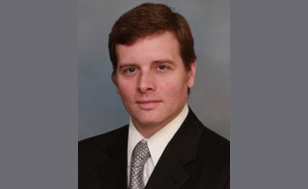There is obvious overlap between legal malpractice and misconduct under the Pennsylvania Rules of Professional Conduct. However, there are important distinctions. The most important distinction is a violation of the Rules of Professional Conduct may not be the basis of a legal malpractice claim against an attorney, but failure to provide competent representation can be the basis for disciplinary action.
An allegation of a breach of duty owed by an attorney to a client may not be based upon the Rules of Professional Conduct. “The Rules of Professional Conduct do not carry the force of substantive law, nor do they broaden an attorney’s duties in civil legal proceedings; instead, they are a basis upon which to sanction a lawyer through the disciplinary process,” as in In re Adoption of M.M.H., 981 A.2d 261, 273 (Pa. Super. 2009). A violation of ethical rules cannot form the basis for a cause of action against a lawyer, as in Reilly by Reilly v. Southeastern Pennsylvania Transporation Authority, 507 Pa. 204, 489 A.2d 1291, 1298-99 (1985); in In re Estate of Pedrick, 505 Pa. 530, 482 A.2d 215 217 and 221 (1984); in Goodheart v. Casey, 523 Pa. 188, 565 A.2d 757 (1989); Struck v. Binns, 1995 WL 57481 (E.D. Pa. 1995) (“It is now well established in Pennsylvania that the Rules of Professional Conduct alone cannot be the basis for civil liability”). In defining the scope of the Rules of Professional Conduct in the preamble, the Supreme Court of Pennsylvania makes clear: “Violation of a rule should not give rise to a cause of action nor should it create any presumption that a legal duty has been breached … They are not designed to be a basis for civil liability. Furthermore, the purpose of the rules would be subverted when they are invoked by opposing parties as procedural weapons. The fact that a rule is a just basis for a lawyer’s self-assessment, or for sanctioning a lawyer under the administration of a disciplinary authority, does not imply that an antagonist in a collateral proceeding or transaction has standing to seek enforcement of the rule. Accordingly, nothing in the rules should be deemed to augment any substantive legal duty of lawyers or the extra-disciplinary consequences violating such a duty.”
This content has been archived. It is available through our partners, LexisNexis® and Bloomberg Law.
To view this content, please continue to their sites.
Not a Lexis Subscriber?
Subscribe Now
Not a Bloomberg Law Subscriber?
Subscribe Now
LexisNexis® and Bloomberg Law are third party online distributors of the broad collection of current and archived versions of ALM's legal news publications. LexisNexis® and Bloomberg Law customers are able to access and use ALM's content, including content from the National Law Journal, The American Lawyer, Legaltech News, The New York Law Journal, and Corporate Counsel, as well as other sources of legal information.
For questions call 1-877-256-2472 or contact us at [email protected]



